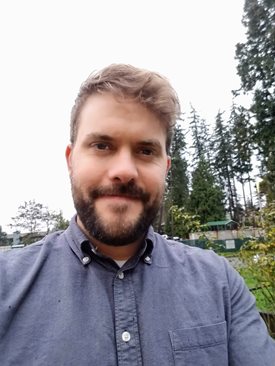This is What Democracy Looks Like

a Discovery Core Experience
BCORE 107 (Social Sciences)
About This Course
Democracy is the name we use for the processes by which communities decide for themselves how they want to live and work together with each other, with all members of the community ideally getting a voice and vote in those processes. Bringing together demos, which means “the people,” and kratia, which means “power” or “rule,” democracy is “government of the people, by the people, and for the people,” as President Abraham Lincoln famously put it.
But democracy has never been so simple. We use terms like freedom, justice, equality, and fairness to describe our form of government. But, what does ‘freedom’ and ‘liberty’ mean exactly? Whose freedom? Freedom to do what or freedom from what? What does equality mean in the context of democracy? What is justice, and who gets to decide what is just? Who counts as ‘the people’? What is ‘government,’ and how should state power (meaning, the institutions and processes by which laws, rules, and regulations are enacted and enforced) be used?
In this class, we begin to answer these questions by exploring a series of historical moments in which American republican democracy took specific forms. These moments include the westward expansion of settler colonialism and the dispossession of land from Indigenous peoples; the Civil War and (the first) Reconstruction era in which the questions of slavery and freedom were especially salient; the Jim Crow era and the terrorizing of Black people; the 1950s-60s Black civil rights and Black power movements (sometimes called the second Reconstruction era); the women’s rights and LGBTQ rights movements starting in the 1960s to the present; and the current historical moment, including what is sometimes called the third Reconstruction era in which racial justice, gender and sexual justice, environmental justice, climate catastrophe, economic inequality and labor exploitation, and other social and political issues have gained salience. Each historical moment offers a case study in how specific people in particular times and places answered these questions. Not only will we study these historical moments, we will also practice democratic deliberation using the Constructive Dialogue Institute’s resources. Finally, since our class coincides with a major election season, you will have an opportunity to participate in community-engaged learning (CEL) by helping with “get out the vote” (GOTV) efforts.
In addition to the theme of democracy, students will learn crucial academic skills, including critical reading strategies, analytical writing strategies, and oral presentation strategies. Along the way, we will learn about important student resources and services on campus that can guide you toward success in achieving your academic, professional, and personal goals.
Why Should I Take This Course?
If you care about the many contemporary social and political challenges we face — locally, nationally, and globally — then this course will help you understand those challenges through the lens of democracy as a set of ethical and political ideals that each generation must put into practice in response to the problems and issues they face.
What Will I Study?
This is not a civics and government class in the traditional sense. We will explore how democratic ideals (liberty, equality, justice, fairness, etc.) get translated and negotiated in the institutions we build (voting, branches of government executive, the electoral college, etc.) and the actions we take as citizens to participate in our democracy (voting, speaking in public forums, political organizing, creating public art, etc.). But, our class will allow you to explore current events by providing historical context and conceptual tools for analyzing issues like racism, police brutality, sexism/misogyny, xenophobia, economic and social inequality, climate change, and environmental justice.
Selected Texts & Films
Films:
- Amend documentary series
- Inequality for All
- What is Democracy?
- Whose Streets?
Readings:
- Cowie, Freedom’s Dominion
- Roberts-Miller, Democracy and Demagoguery
- Anderson, One Person, No Vote
- Davis, Freedom is a Constant Struggle
Professor Ian Porter (he/him/his)
School of Interdisciplinary Arts & Sciences

About Professor Porter
Ian Porter is a teacher and librarian whose courses focus on the intersection of communication, information, culture, and democracy. In his free time, he loves hanging out with his wife and daughters, eating good food, and listening to good music on Seattle’s amazing local radio station KEXP.
Contact
Email: iporter@uw.edu
Democracy is not just a system of government; it is a way of life.
Professor Porter